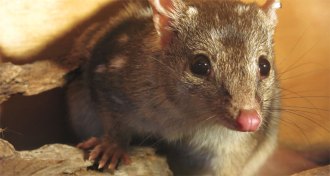All Stories
-
 Cosmology
CosmologyIn era of collaboration, individual initiative can still pay off
A risky venture to study cosmic ray particles offers no guarantee of success, but it may help answer two of the biggest questions in physics.
By Eva Emerson -
 Health & Medicine
Health & MedicineTeens have higher anaphylaxis risk than younger kids
Adolescents may be more apt to experience an extreme allergic reaction than younger children, researchers report.
By Nathan Seppa -
 Neuroscience
NeuroscienceElectrical zap of cells shapes growing brains
The electric charge across cell membranes directs many aspects of brain development, and changing it can fix certain brain birth defects.
-
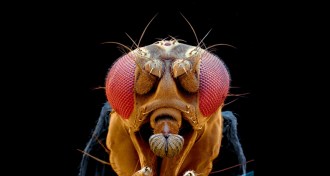 Neuroscience
NeuroscienceMapping aggression circuits in the brain
Using optogenetics and other techniques, scientists are tracing connections to and from the brain’s aggression command center.
By Susan Gaidos -
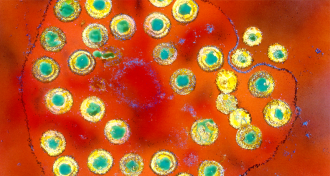 Life
LifeExperimental herpes vaccine works in mice
An experimental herpes vaccine works in animal tests by using an approach starkly different from that used in previous vaccine development.
By Nathan Seppa -
 Agriculture
AgricultureCage free isn’t good enough for livestock, ‘The Modern Savage’ argues
Even on a small farm, life can be brutal for animals, historian and animal rights advocate says in new book.
By Beth Mole -
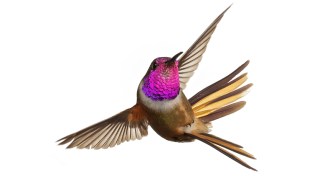 Animals
AnimalsHummingbird may get promoted
Not just a subspecies: A flashy, squeaky hummingbird should become its own species, ornithologists argue.
By Susan Milius -
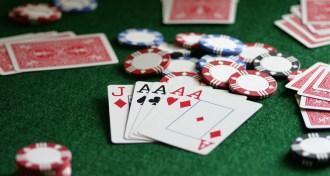 Life
LifeLife’s origin might illustrate the power of game theory
Game theory math can describe molecular competition and cooperation, perhaps providing clues to the origin of life.
-
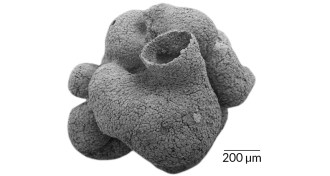 Paleontology
PaleontologyPossible ancestor of sponges found
An exquisitely preserved 600-million-year-old fossil from China has cell types and a shape resembling sponges, thought to be among the first multicellular animals to evolve.
By Susan Milius -
 Genetics
GeneticsProtein comparisons proposed in 1960s for tracking evolution
In 1965, two scientists spotted molecular signatures of primate divergence. The tool became widespread for studying evolution – and one researcher’s career ended in crime.
-
 Environment
EnvironmentReplacement for toxic chemical in plastics, receipts may be just as toxic
Mounting evidence suggests that BPS, a common chemical in plastics, may cause the same health effects as BPA.
By Beth Mole -
